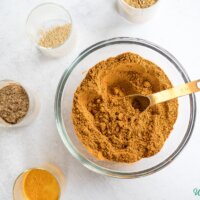Can incorporating yogurt into your diet keep diabetes at bay?
The U.S. Food and Drug Administration (FDA) has implied that it’s possible.
The health agency announced in March that it will not object to a claim from Danone North America — maker of Dannon and other popular yogurt brands — that regularly eating yogurt could reduce the risk of type 2 diabetes.
The FDA intends to allow the claim to appear on yogurt food labels, “provided that the qualified health claims are worded so as not to mislead consumers, and that other factors for the use of the claim are met.”
“After reviewing the petition and other evidence related to the proposed qualified health claim, the FDA determined that there is some credible evidence supporting a relationship between yogurt intake and reduced risk of type 2 diabetes, but this evidence is limited,” the FDA said in a statement.

The FDA said it will not object to a claim that regularly eating yogurt could reduce the risk of type 2 diabetes. (iStock)
The health claim that the FDA recently approved is referred to as a “qualified claim.”
That means the evidence isn’t strong or conclusive, but is suggestive of benefit to human health, noted Sherry Coleman Collins, a food allergy dietitian and expert from the Atlanta metropolitan area.
UTAH MOM FIGHTS FOR HER DAUGHTER’S ACCESS TO DISCONTINUED DIABETES MEDICATION: ‘LIFE-SAVING’
Regular consumption is considered 2 cups (3 servings) per week of yogurt, which is the minimum amount for this qualified health claim.
“I don’t like the idea of suggesting that one food alone has the power to reduce disease, because we know it’s really all about the pattern of eating,” she told Fox News Digital.

Regular consumption is considered 2 cups (3 servings) per week of yogurt, which is the minimum amount for the qualified health claim. (iStock)
“Yogurt — as part of a diet rich in plant-based foods like fruits, vegetables and whole grains, protein foods like lean meats and/or beans, lentils and soy, and fermented dairy — has shown to be very health-promoting,” Collins added.
Yogurt that contains live, active cultures is a great way to get good bacteria in the diet, according to Collins.
CLICK HERE TO SIGN UP FOR OUR HEALTH NEWSLETTER
“A healthy gut, which is one with diverse microbiota and heavy in healthy strains, reduces the risk of many chronic conditions,” she said.
“The good bacteria found in fermented dairy are associated with overall better health and lower rates of disease, including type 2 diabetes.”

“Plain Greek yogurt is fantastic, because it’s high in protein and calcium, and you can adjust the sweetness to your liking by adding a little honey and/or fruit,” a dietitian said. (iStock)
Tanya Freirich, a registered dietitian nutritionist in Charlotte, North Carolina, who practices as The Lupus Dietitian, said she agrees that unsweetened yogurt can be beneficial in reducing diabetes risk as a source of protein and probiotics.
Freirich noted, however, that there isn’t “one magic food” that can reduce the disease despite all odds.
“Health is a sum of all of your habits, and cannot be radically changed by one food item.”
“People should speak with a registered dietitian and their health care provider about an overall healthy eating pattern and lifestyle that would serve them best,” she told Fox News Digital.
“Health is a sum of all of your habits, and cannot be radically changed by one food item.”
IMAGE
When choosing yogurt, Collins recommended looking for varieties that are low in added sugar.
“Plain Greek yogurt is fantastic, because it’s high in protein and calcium, and you can adjust the sweetness to your liking by adding a little honey and/or fruit,” she said.
There’s likely no additional benefit beyond a couple of servings, Collins said.
CLICK HERE TO GET THE FOX NEWS APP
Freirich added that adding the diabetes reduction claim to all yogurt packaging could carry a risk.
“Many yogurts have a lot of added sugars or high-sugar add-ins, like fruit syrup, chocolate and even cookie pieces, which would certainly reduce any benefit from the protein and probiotics,” she told Fox News Digital.
Fox News Digital reached out to Danone requesting comment.





